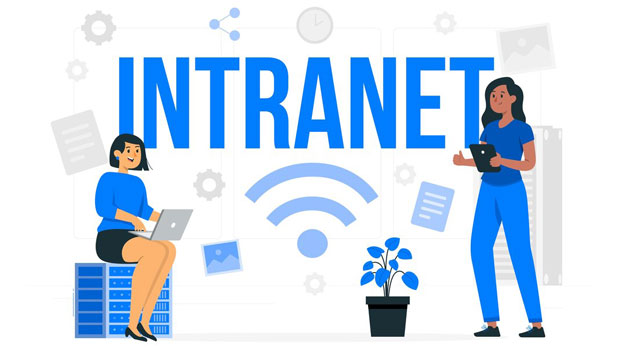In the ever-evolving world of mobile office solutions, proxies play a crucial role in ensuring security, privacy, and connectivity. With the increasing reliance on remote work and the constant need for secure, uninterrupted internet access, choosing the right proxy can be a critical decision. Among the many options available, PYPROXY and Extratorrent2 Proxy are often compared for their performance, security, and reliability in mobile office environments. This article will provide an in-depth analysis of both proxies, evaluating their strengths, weaknesses, and overall suitability for mobile office use. The Importance of Proxies in Mobile Office EnvironmentsBefore diving into a comparison of PyProxy and Extratorrent2 Proxy, it's essential to understand why proxies are indispensable for mobile office setups. Mobile offices often involve remote teams working from various locations, making secure and reliable internet connections vital. Proxies can help by acting as intermediaries between the user and the internet, allowing secure data transmission, anonymizing online activity, and providing access to restricted content. Additionally, proxies are crucial for businesses that require location-based access or need to secure sensitive data when working on public networks.Overview of PyProxyPyProxy is a versatile proxy tool, popular among tech-savvy users for its flexibility and customization options. It allows users to route their traffic through different servers, offering enhanced anonymity and bypassing restrictions on certain websites. PyProxy is widely used for its ability to maintain a stable and secure connection, particularly for those who require high-level encryption and privacy.One of the main advantages of PyProxy is its open-source nature, allowing users to modify and configure it according to their specific needs. It supports a variety of protocols, including HTTP, HTTPS, and SOCKS5, making it compatible with a range of devices and applications. Additionally, PyProxy has been praised for its user-friendly interface, making it accessible to both beginners and advanced users.However, there are some limitations to consider. PyProxy is highly dependent on the availability and stability of the servers it connects to. If a server goes down or experiences issues, users may encounter slow speeds or connection failures. Furthermore, since it is open-source, the security of the proxy can vary depending on how well the user has configured it. Improper configurations can expose users to potential vulnerabilities.Overview of Extratorrent2 ProxyExtratorrent2 Proxy, on the other hand, is another proxy tool that has gained attention due to its specific focus on bypassing censorship and geo-blocking restrictions. It is often used to access websites or content that might be restricted in certain regions, making it a useful tool for users working in countries with strict internet regulations. Extratorrent2 Proxy is known for its speed and reliability, particularly in terms of downloading content or accessing restricted media.Extratorrent2 Proxy operates by routing traffic through a network of high-speed servers, ensuring that users experience minimal latency and fast connections. This makes it a favorable choice for those who require uninterrupted access to online content, especially when working with media files, video streaming, or large downloads.However, there are concerns regarding the security and privacy of Extratorrent2 Proxy. Unlike PyProxy, Extratorrent2 Proxy is not open-source, which means that users have less control over the proxy's configuration. Additionally, there have been instances where users have reported encountering issues with server availability, which can result in dropped connections or slow speeds. While it may offer solid performance in certain use cases, it may not be as reliable for users who prioritize privacy and security.Key Differences Between PyProxy and Extratorrent2 ProxyWhen comparing PyProxy and Extratorrent2 Proxy, there are several key differences that stand out:1. Customization and Control: - PyProxy offers users more control and customization options, especially for those who need specific configurations for their work. As an open-source tool, it provides greater flexibility, allowing users to fine-tune their proxy settings according to their unique requirements. - Extratorrent2 Proxy, being a more streamlined tool, provides fewer customization options. While it excels in speed and reliability, users do not have the same level of control over the settings, which can be limiting for some mobile office users.2. Privacy and Security: - PyProxy stands out for its focus on privacy and security. It supports strong encryption and anonymization protocols, making it a suitable choice for users who handle sensitive information. However, users must ensure that they configure it correctly to avoid potential security flaws. - Extratorrent2 Proxy is faster but may not offer the same level of security. It is primarily focused on providing access to restricted content, making it less suitable for users who require strong privacy protections.3. Reliability: - PyProxy can be highly reliable when configured properly. However, its performance depends largely on the reliability of the servers it connects to. Server downtime or instability can affect its performance, potentially causing disruptions in mobile office workflows. - Extratorrent2 Proxy is generally more stable and faster, especially in terms of media access. However, its closed-source nature and occasional server issues may pose challenges for users who require uninterrupted and secure connections.Which Proxy is Better for Mobile Office Use?Ultimately, the decision between PyProxy and Extratorrent2 Proxy depends on the specific needs of the user. For those who prioritize customization, privacy, and security, PyProxy is likely the better option. Its open-source nature, combined with strong encryption and protocol support, makes it a more suitable choice for users who need a reliable and secure solution for mobile office work.On the other hand, if speed and ease of use are more important, particularly for accessing restricted content or downloading large files, Extratorrent2 Proxy may be the better fit. It offers high-speed connections and reliable performance for tasks that do not require a heavy emphasis on privacy.In conclusion, both PyProxy and Extratorrent2 Proxy have their merits and drawbacks, depending on the context in which they are used. For mobile office environments where security and privacy are top priorities, PyProxy is likely the more reliable and versatile choice. However, for users who need quick access to content and a high-speed connection, Extratorrent2 Proxy may be the better option. As always, users should carefully assess their specific needs and requirements before selecting the right proxy for their mobile office setup.
Oct 31, 2025



































































